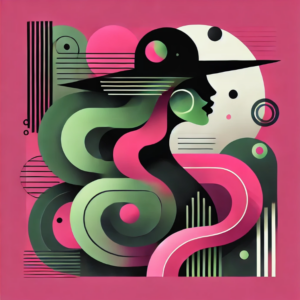 Ah, the smell of outrage in the air! The highly anticipated Wicked movie adaptation is finally here, bringing stunning performances, breathtaking visuals, and… of course, an army of critics who seem to think it’s the apocalypse in cinematic form. The religious right and their MAGA allies are up in arms once again, not over plot holes or pacing, but because Elphaba is played by a Black actress (Cynthia Erivo) and the film boasts a diverse, multiracial cast, helmed by Asian-American director Jon M. Chu. Let’s just cut to the chase: their outrage isn’t about witches or moral corruption. It’s about the horrifying idea (to them) that representation matters.
Ah, the smell of outrage in the air! The highly anticipated Wicked movie adaptation is finally here, bringing stunning performances, breathtaking visuals, and… of course, an army of critics who seem to think it’s the apocalypse in cinematic form. The religious right and their MAGA allies are up in arms once again, not over plot holes or pacing, but because Elphaba is played by a Black actress (Cynthia Erivo) and the film boasts a diverse, multiracial cast, helmed by Asian-American director Jon M. Chu. Let’s just cut to the chase: their outrage isn’t about witches or moral corruption. It’s about the horrifying idea (to them) that representation matters.
What They’re Saying
From conservative pundits to social media soapboxes, the criticisms sound laughably familiar:
- “It’s godless supernaturalism!” (Translation: We don’t like it when witches aren’t ugly and evil.)
- “It’s normalizing witchcraft!” (Translation: Strong, magical women scare us.)
- “It pushes a woke agenda!” (Translation: The cast doesn’t look like Leave It to Beaver.)
Of course, they never say the quiet part out loud-that the real “problem” is seeing a Black woman soar above Oz, green skin and all, or a multicultural ensemble taking center stage in a major Hollywood production. But you can feel the undertones. And while they clutch their pearls, let’s not ignore the darker forces at play: online troll armies, likely bolstered by Russian disinformation campaigns, amplifying the narrative to stoke division. After all, nothing says “American family values” like a smear campaign against a fantasy film.
Fear, Wrapped in Virtue
The irony is glaring. These same critics claim moral superiority, yet their behavior looks a lot less godly and a lot more superstitious. Instead of embodying love or open-mindedness, they act like modern-day villagers, torches in hand, screaming “Witch!” at anything that challenges their narrow worldview. And let’s be honest: it’s not just about religion. It’s about the discomfort that comes with cultural shifts-whether it’s a Black Elphaba, a diverse cast, or the idea that women (gasp!) can be powerful without being evil.
History Repeats Itself
If this all feels familiar, it should. The same moral outrage erupted over The Wonderful Wizard of Oz-not the 1939 Judy Garland classic, but L. Frank Baum’s original 1900 novel. Back then, critics denounced it as “godless” and “morally questionable” because its characters (brace yourself) found courage, heart, and wisdom on their own rather than relying on divine intervention. Sound familiar? Let’s compare the outrage, shall we?
- Then: “It teaches children that humans can develop virtues without God’s help!”
- Now: “It’s pushing woke nonsense that undermines traditional values!”
- Then: “It’s full of witches and magic, corrupting young minds!”
- Now: “It’s normalizing witchcraft with its pro-feminist agenda!”
Funny how the same arguments get dusted off and repackaged every few decades.
The Real Wickedness
At its core, Wicked is a story about empathy, friendship, and challenging societal norms. It’s not anti-religion or a manifesto for broomstick-wielding anarchists. Yet, for some, those themes are terrifying because they undermine rigid power structures and encourage critical thinking. And heaven forbid a story teach us to see the world from someone else’s perspective (looking at you, Elphaba). The real wickedness isn’t in the story; it’s in the small-mindedness of those who can’t handle progress. Instead of celebrating a film that uplifts and inspires, they’d rather tear it down because it doesn’t fit their outdated narrative of what art and people should look like.
[/et_pb_text][/et_pb_column][/et_pb_row][/et_pb_section]